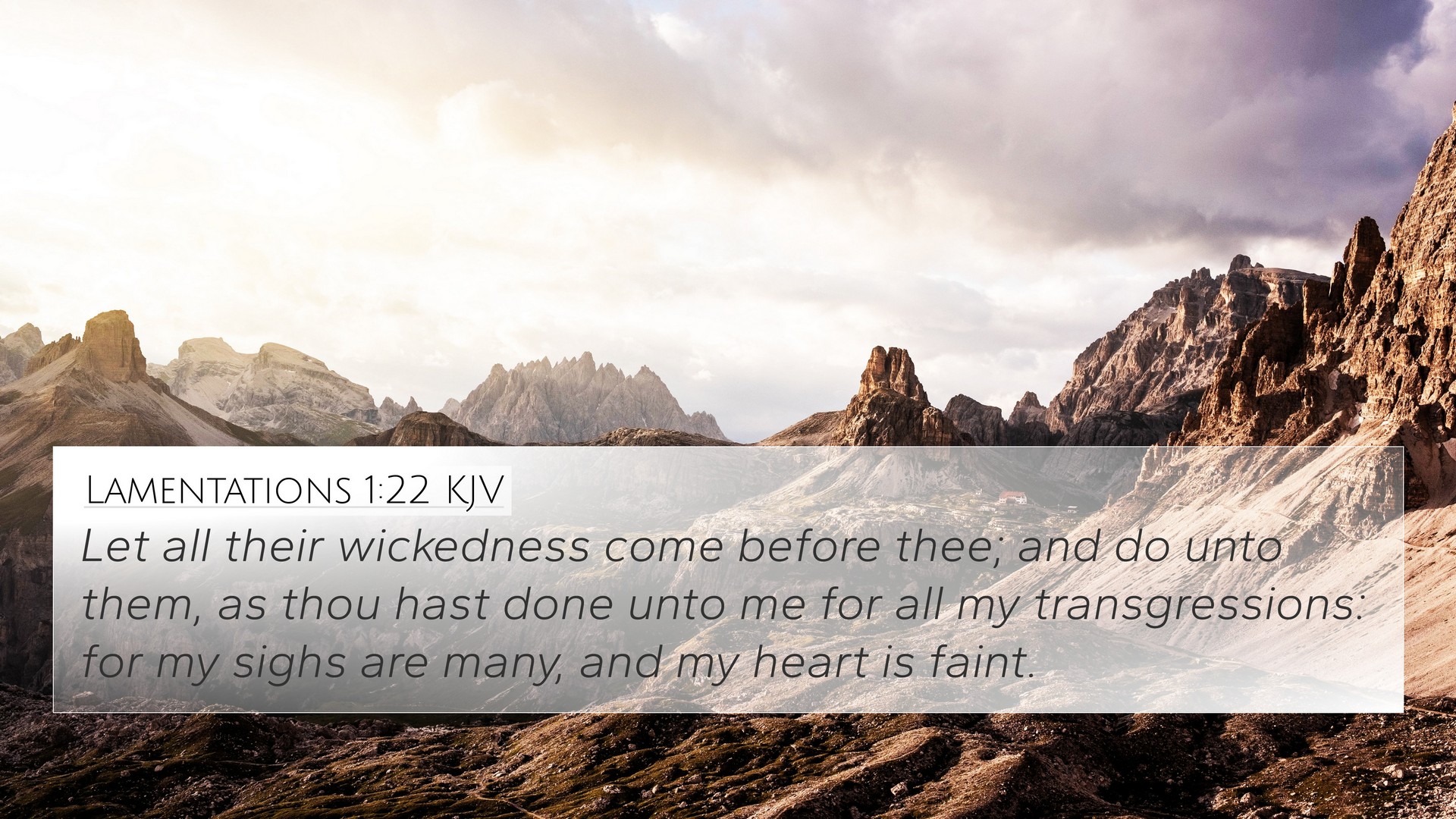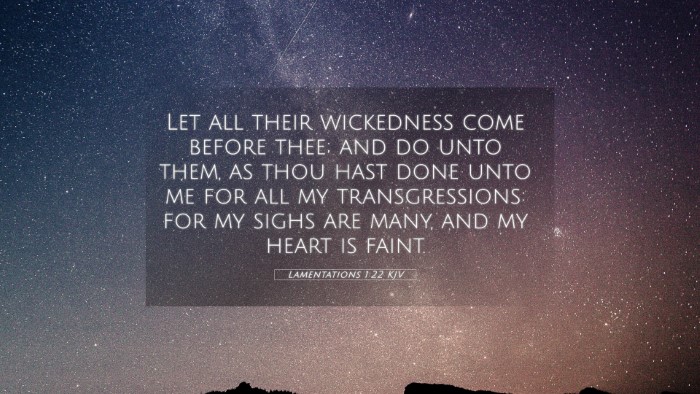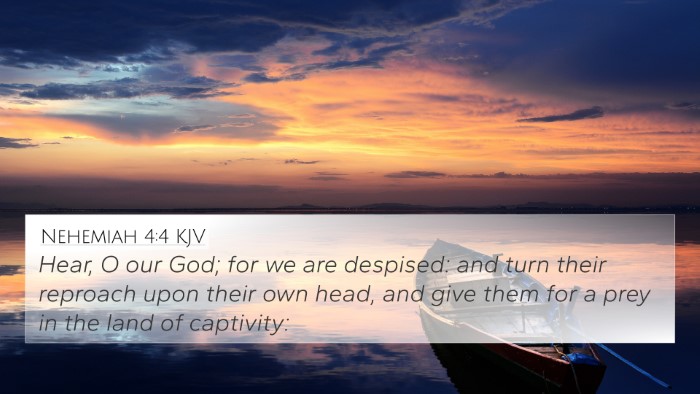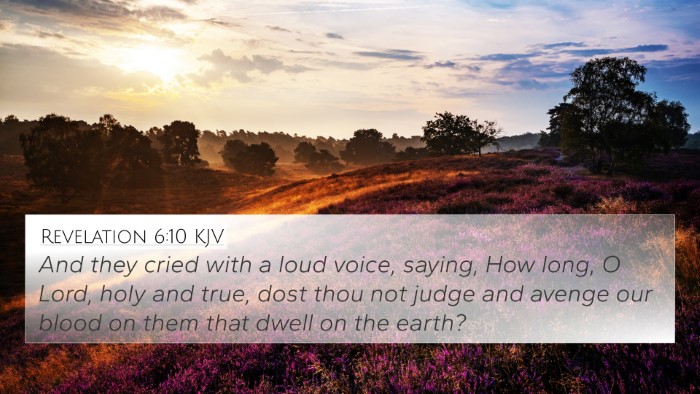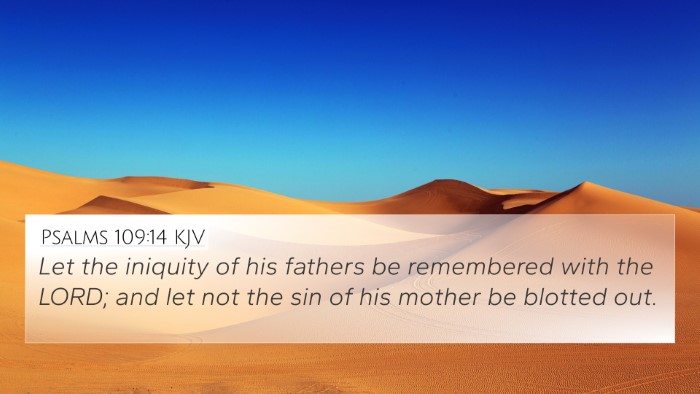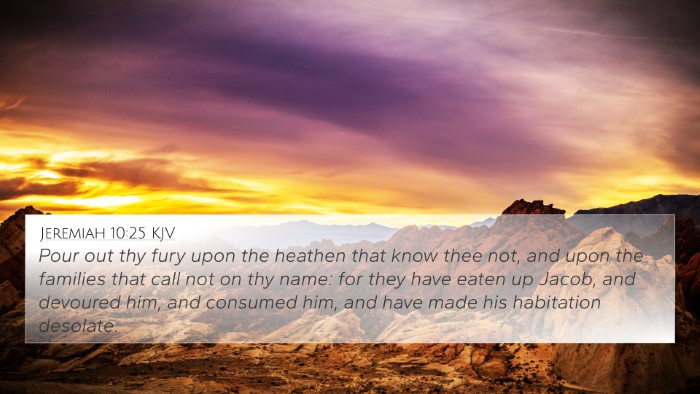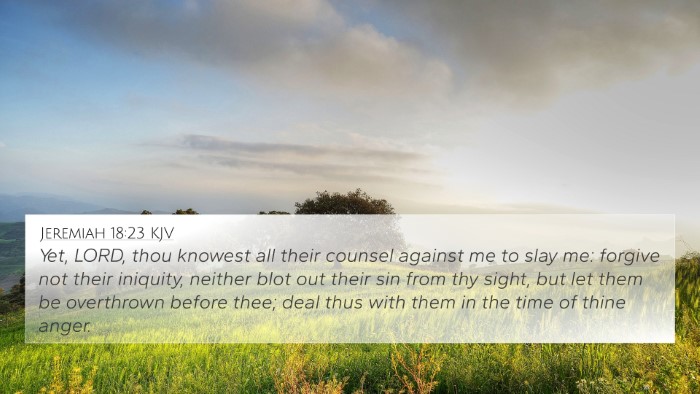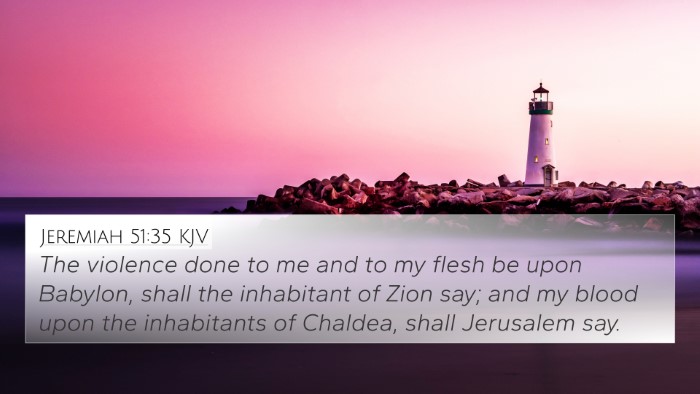Lamentations 1:22 - Verse Meaning and Interpretation
Biblical Context: Lamentations, traditionally attributed to the prophet Jeremiah, expresses profound sorrow over the destruction of Jerusalem. In this specific verse, the cry for judgment upon the enemies is a reflection of the deep pain and loss experienced by the community.
Verse Text
Lamentations 1:22: "Let all their wickedness come before thee; and do unto them, as thou hast done unto me for all my transgressions: for my sighs are many, and my heart is faint."
Summarized Meaning
The verse encapsulates a plea for divine justice, where the speaker acknowledges personal sin while appealing for vengeance against enemies. This duality highlights the tension between personal lament and communal suffering.
Insights from Commentaries
- Matthew Henry: Notes that the lamentation is both personal and corporate. He emphasizes that the author desires that God take notice of their enemies' actions, as a reminder of God’s justice.
- Albert Barnes: Points out the cry for retribution as a reflection of the depth of suffering endured. He indicates that the lament is not only for personal sins but the collective sin of the people, showcasing a theology of shared fate.
- Adam Clarke: Discusses the emotional weight of the verse, underscoring the speaker's desperate state. He remarks on the significance of 'sighs' as a representation of deep inner anguish and a plea for God to act.
Thematic Crossing
This verse invites exploration into various Biblical themes, such as:
- The nature of divine justice
- The interplay between personal sin and communal suffering
- God’s awareness of human sorrow
- The human condition in relation to divine decree
Cross-References
Understanding Lamentations 1:22 can be enriched through its connections with other scriptures:
- Psalms 79:12: "And render unto our neighbors sevenfold into their bosom their reproach, wherewith they have reproached thee, O Lord."
- Deuteronomy 32:35: "To me belongeth vengeance, and recompence; their foot shall slide in due time."
- Isaiah 63:4: "For the day of vengeance is in mine heart, and the year of my redeemed is come."
- Jeremiah 50:15: "Shout against her round about: she hath surrendered; her bulwarks are fallen, her walls are thrown down: for it is the vengeance of the Lord."
- Romans 12:19: "Dearly beloved, avenge not yourselves, but rather give place unto wrath: for it is written, Vengeance is mine; I will repay, saith the Lord."
- Galatians 6:7: "Be not deceived; God is not mocked: for whatsoever a man soweth, that shall he also reap."
- 2 Thessalonians 1:6: "Seeing it is a righteous thing with God to recompense tribulation to them that trouble you."
Understanding through Biblical Connections
This verse illustrates profound themes that resonate throughout scripture. Cross-referencing Biblical texts such as those mentioned above can deepen understanding of:
- Vengeance and Justice: Exploring how different books in the Bible approach the idea of divine retribution.
- Personal Accountability: Linking the need for individual repentance (as seen in the New Testament) with the corporate lament in Lamentations.
- Divine Compassion amidst Anger: The balance between God’s justice and mercy found in Psalms and the Prophetic books.
Tools for Further Study
To delve deeper into the connections found in scripture regarding Lamentations 1:22, consider using the following resources:
- Bible Concordance: Look up the original Hebrew terms used in this verse for richer insight.
- Cross-reference Bible Study Guides: Equip yourself with various study materials that highlight cross-references for enhanced understanding.
- Bible Reference Resources: Utilize tools that showcase thematic connections across both the Old and New Testament.
Conclusion
Lamentations 1:22 serves as a profound illustration of grief, justice, and the human condition in the face of divine sovereignty. Engaging in comparative Bible verse analysis can illuminate the interconnectedness of scripture and the overarching narrative of God’s redemptive plan through Christ.
